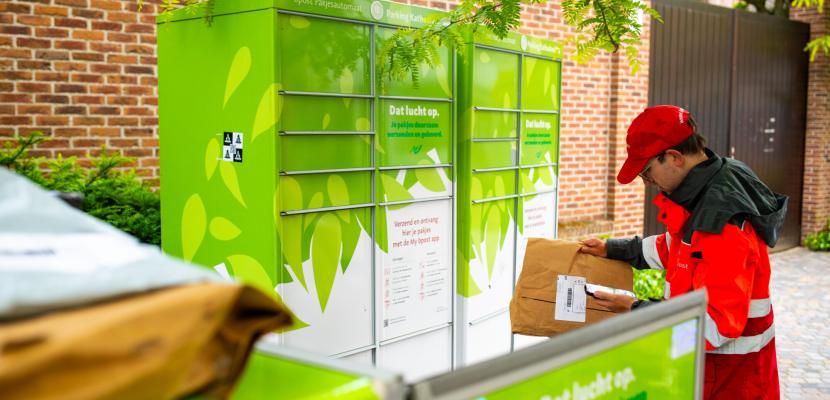
Consolidating parcels: the installation of a smart parcel locker network

About this good practice
Parcel lockers contribute to sustainably organizing urban
logistics: they avoid failed home deliveries, they make consolidation
possible, they avoid unnecessary vehicle movements,
driven kilometers and CO2-emission. A part of the logistic
streams in the inner city of Mechelen concerns B2C parcels.
In order to handle these parcels in a sustainable way, the city
joined forces with national courier server Bpost. First, three
big parcel lockers were installed. Afterwards, over 50 small
parcel lockers followed. This successful model is currently being replicated in other cities across Belgium.
The lockers are strategically located at a distance of 400m from
each other, the lockers encourage picking up or dropping off
parcels on foot or by bike. In addition, Bpost engages itself
to supply and empty all parcel lockers with zero emission
vehicles (bike trailers, e-vans, light electric vehicles). From
their city hub just outside the city, parcels are collected and
strategically distributed to the different parcel lockers.
The city approved installing the lockers
on public domain stating that their use is in the interest of
the citizens and of a general interest that justifies taking up
the needed space. Also, by choosing for public domain the
locker is reachable 24/7. Advice for the exact location of a
locker was asked from different city departments: monuments,
police, mobility, public domain…
Expert opinion
Resources needed
Mainly a lot of personnel to realize the installation (concrete: foresee 2working days/week in the first 1,5 years). The cost of the hardware, software and installation was completely covered by the logistics service provider (LSP). The city mainly had a communication cost of 20.000 € estimated.
Evidence of success
The use of the lockers, both the big and the small lockers,
increases steadily. Since the start of the project, the existing
lockers perform better every year, and new lockers were
added to be able to handle the volumes.
Between January 2022 and the end of October 2022, 72.617
pick ups and drop offs were registered in the small parcel
lockers. The LSP achieved a reduction in CO2 emissions of 97%. They achieved a reduction of 22% in congestion, 49% in noise disturbance and 77% in air pollution.
Potential for learning or transfer
Advice #1.
Write out a tender to choose the right party. Make sure
the tender mentions the lockers should be an open system,
available to use by different logistic players.
Advice #2.
Strategically locate these lockers: accessible on foot or by
bike, 24/7 reachable in a safe environment with enough
passing through.
Advice #3.
Only with enough lockers, a city can encourage its inhabitants
to pick up or drop off parcels in a sustainable way.
Advice #4.
Involve all relevant stakeholders to guarantee broad support.

